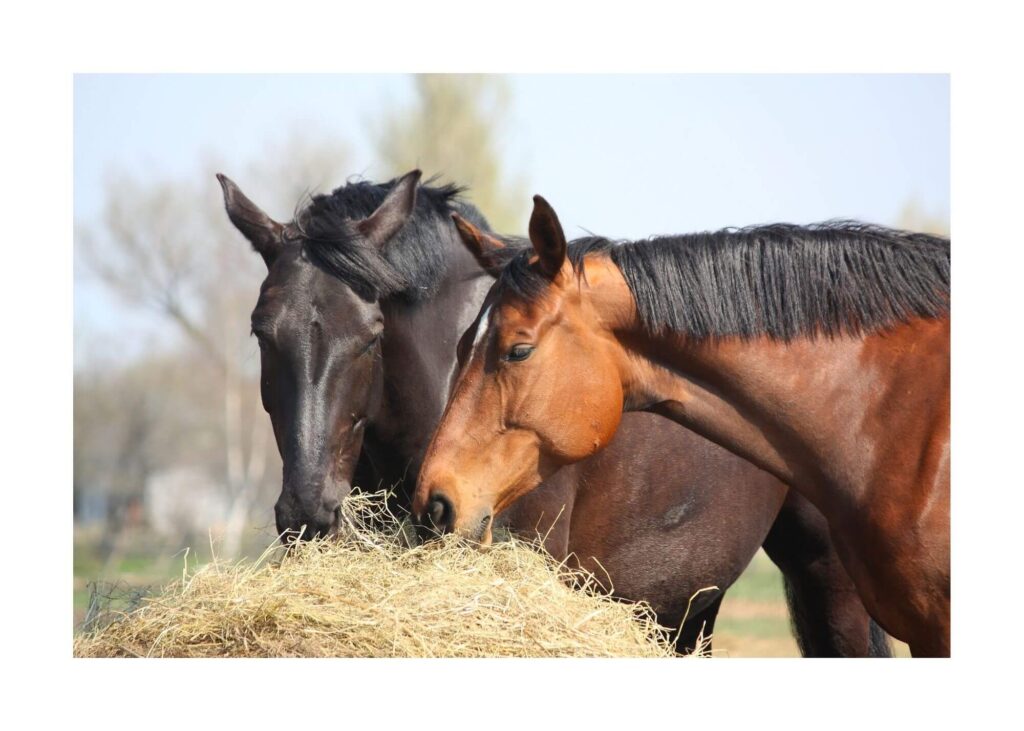
The bitter cold winter has arrived and many horse owners are engaged in their yearly debate; which is better to feed for warmth, alfalfa or grass hay. When temperatures drop, feed requirements increase for your horse to consume enough calories to maintain condition. Staying warm requires calories beyond those needed for regular maintenance. When temperatures drop significantly, horses need to increase their metabolic heat production to maintain body temperature.
The needs increased vary based upon a number of things; age, hair coat, blanketing, indoor or outdoor housing and weather conditions. Therefore, the major question becomes – what form of extra calories should be provided for your horse. I remember the “the corn debate” of my youth, when many owners believed that increasing the horses’ daily grain intake, particularly corn, was the simplest way to add more calories. However, as we have learned over the years, feeding more hay is the ticket.
Forages such as hay require fermentation in the gut to maximize use in the digestive tract. Therefore, any kind of forage can help keep your horse warm in winter but less digestible types might result in greater amounts of heat being produced. Grass hay is a lower-calorie hay so larger rations of grass hay can be fed. Many people believe alfalfa is the best hay to feed in winter for warmth, probably due to alfalfa’s high protein content and many believe protein is a good energy source.
Horses tend to eat grass hay slower than alfalfa, so there’s the possibility that grass hay will last longer during the night, resulting in a more continuous stream of fuel for the fermentation process. The bottom line is both types of hay will result in fermentation in the gut so it comes down to which is the best type of hay for your horse. When making your decision please keep in mind:
Feeding 100% alfalfa as a forage program could present a couple issues that can be problematic for some horses. 1.) Excess protein intake requires the extra protein to be excreted via urine. This can result in poor stamina, predisposition to dehydration and reduce heat tolerance, especially in hot and humid conditions. 2.) Excess protein intake, from alfalfa hay AND grain, can cause excessive urination. Ammonia fumes inhaled repeatedly over time can cause irritation in the airway. Therefore, Dr. Bill Vandergrift recommends alfalfa intake be less than 50% of your horse’s total daily forage.